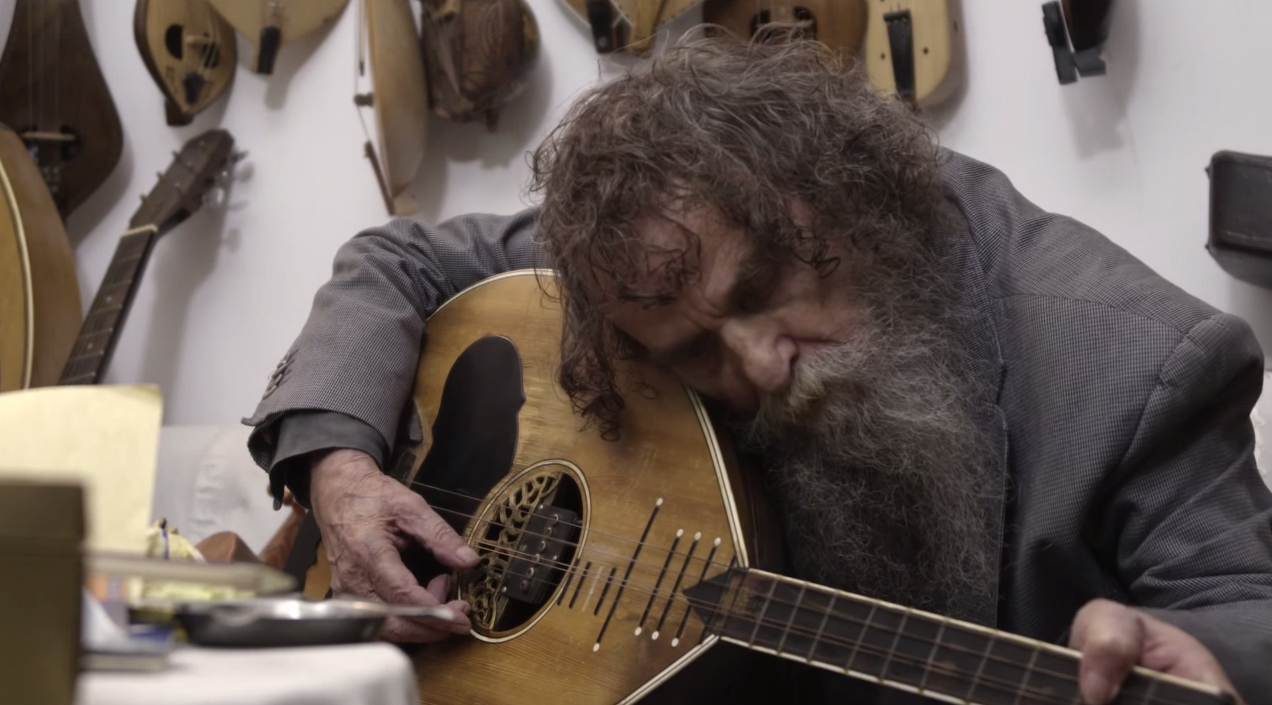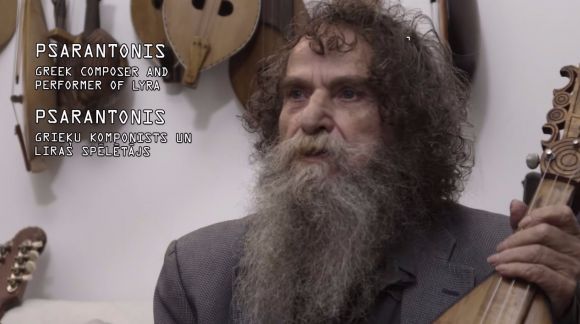The most direct link to Greece is Aspazija’s nom de plume. Her real name was Johanna Emīlija Lizete Rozenberga, but she chose this revealing nickname for herself at an early age. In ancient Greece, Aspasia was a sweetheart of the influential Athens’ statesman Pericles – an educated woman who often invited the most prominent thinkers of the time to her house.
Another link between the two cultures is the willingness to interpret traditions in new and modern ways. At the end of the 19th century and the beginning of the 20th century, Latvian writer Rainis’ poetry and dramaturgy was characterised by its creative transformation of Latvian folklore elements. And for the last several decades, Psarantonis' music has also been shaped by surprising interpretations of traditional Cretan melodies.
Antonis Xylouris, nicknamed Psarantonis (Greek: Ψαραντώνης), comes from the mountainous village of Anogeia in Crete. He started playing the lyre when he was nine and his first public performances were at traditional wedding feasts. Since the 1960s he has recorded around 30 albums and performed in Europe, North America and Australia. Psarantonis is known for the special timbre of his voice and his lyre-playing style characterised by musical dynamism: sometimes gently whispered, great storms can suddenly erupt only to quickly abate again and sink into mythic silence.

In the 20th episode of the #mindpower project, the Greek composer, singer and lyre player Psarantonis reads an excerpt from Aspazija’s poem “Silk Veil” from the poetry collection “An Armful of Flowers” (1911). This speaks about small nations with a great cultural heritage.
For Latvians, this heritage is constituted by traditional folk songs that combine joy in nature’s beauty and greatness with sorrow about the pains people suffer. For Cretans, it is the rich mythical world. In the short film, Psarantonis relates one of these myths about Zeus’ childhood on Mount Ida where he was raised by the goat Amalthea and dancing soldiers, the Kouretes.
“The pulse of life lies in music, in nature and in us,” says the main character of this episode, Psarantonis.
The #mindpower (#domasspēks in Latvian) project is dedicated to the 150th anniversary of the Latvian poets Rainis and Aspazija. It features a collection of 29 short films in which celebrities from all the EU Member States read excerpts from the works of Rainis and Aspazija in their native language. The project is part of the Presidency cultural programme.
Each week a new video is released on the Presidency's website EU2015.LV. You can also watch the episodes on the Presidency's official Youtube channel and on the project's Facebook page.




